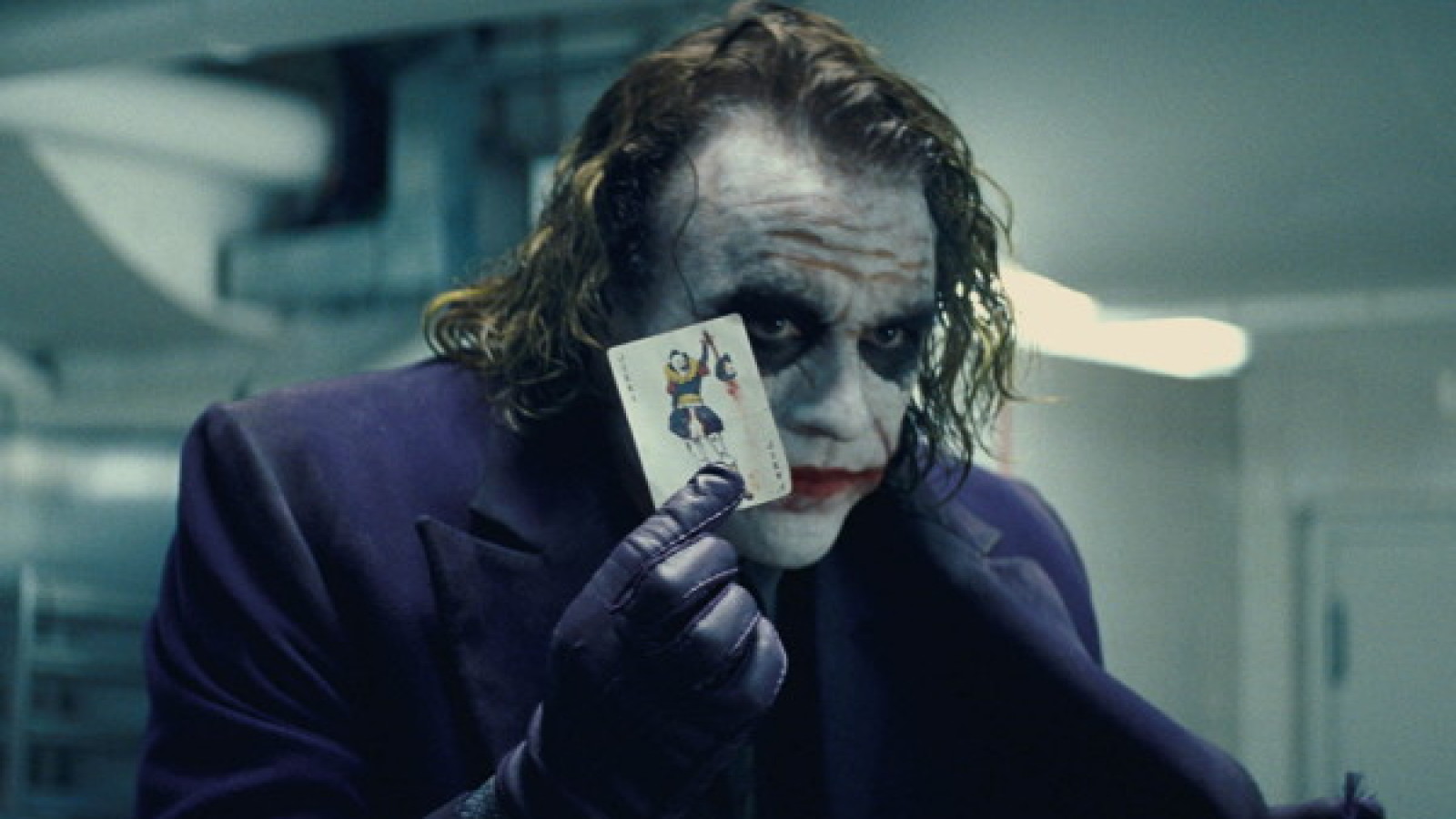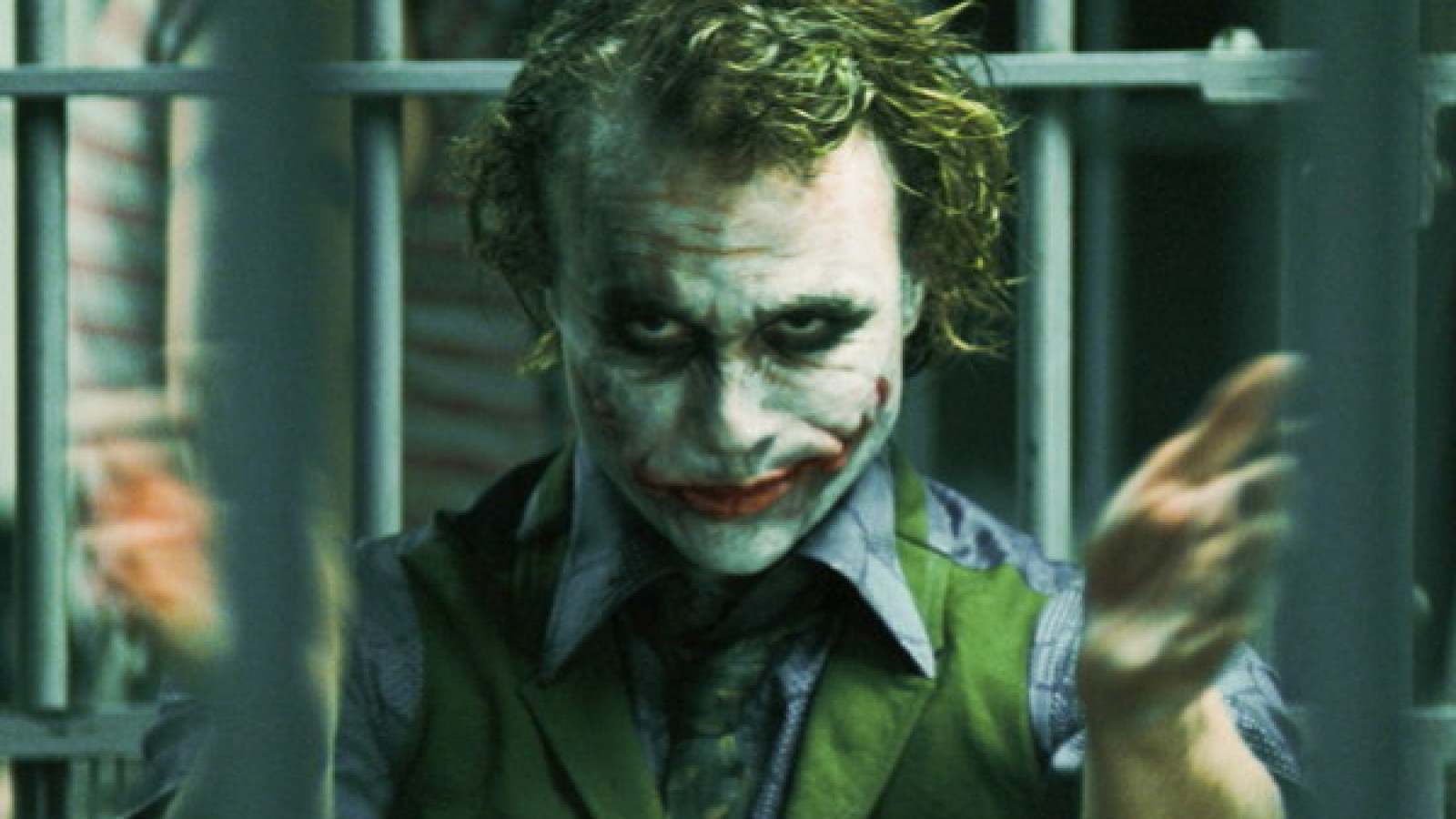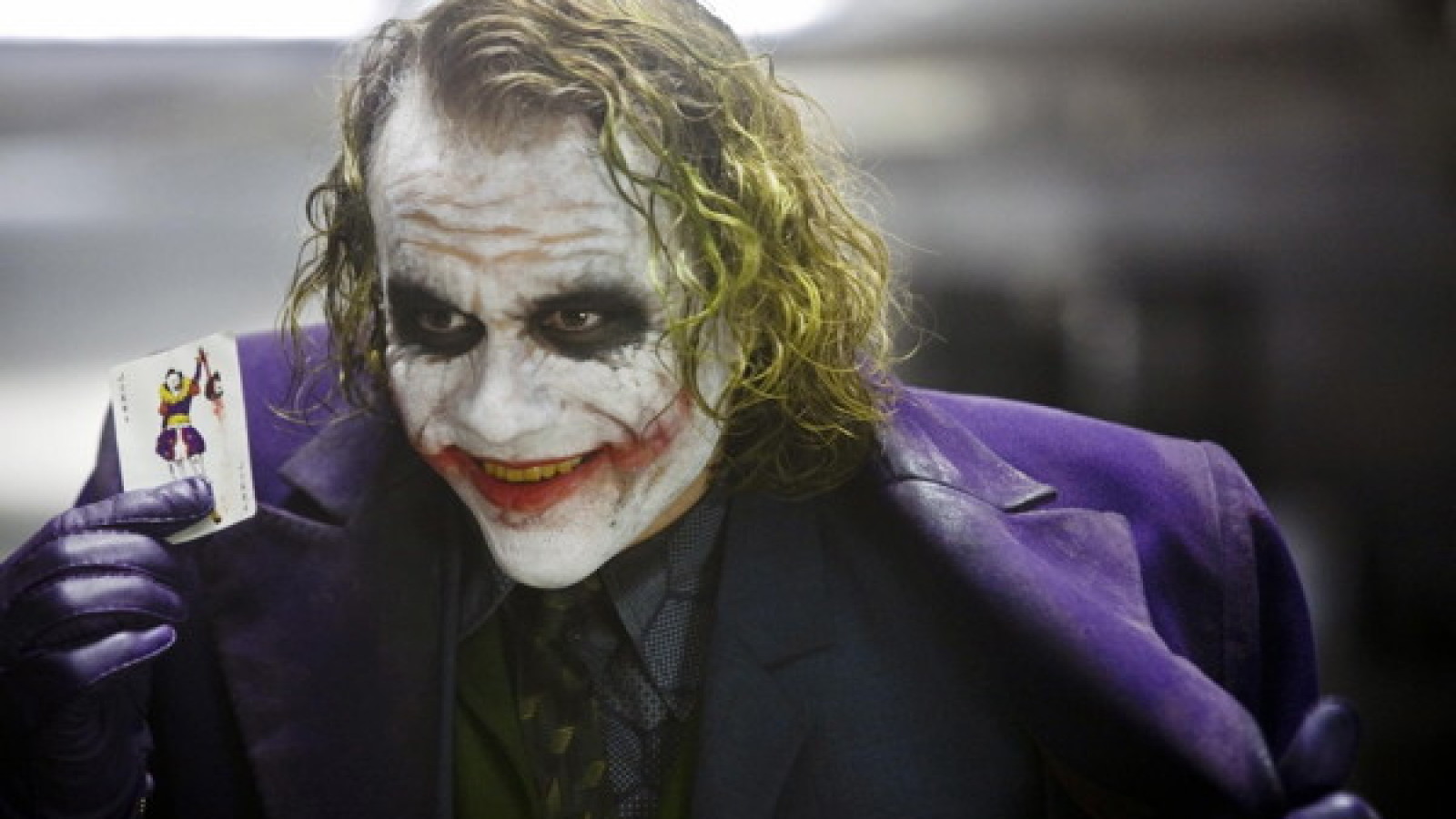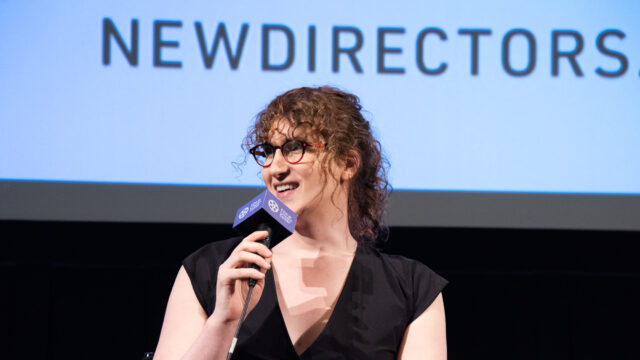The Dark Knight
At the start of Nolan’s second Batman epic, Gotham City has become a cleaner, better-lit place than it was when last we saw it. Terrified of what lurks in the nighttime shadows, Carmine Falcone’s cheap-suited mafiosos now make their dirty deals in broad daylight, while a crusading new district attorney, Harvey Dent (Aaron Eckhart), has done much, sans cape or mask, to bring order and civility to the streets. Enter the Joker (Heath Ledger), a committed anarchist in a smear of crimson lipstick, a dusting of floury foundation and pools of Louise Brooks eye shadow. In a brilliant, Oscar-winning performance that would have assured him cinematic immortality even had he not died, tragically, six months before the film’s release, Ledger’s Joker isn’t the ebullient prankster of Batman movies (and TV shows) past but rather a freakishly disturbing embodiment of those destructive human impulses that can’t be explained away in an evening-news sound bite. Filled with dazzling action sequences shot in the 70mm IMAX format, The Dark Knight also ranks among the most psychologically complex of comic book movies, leaving Bruce Wayne—and us—to ponder the uncertain destiny of principled men in an unprincipled world.









